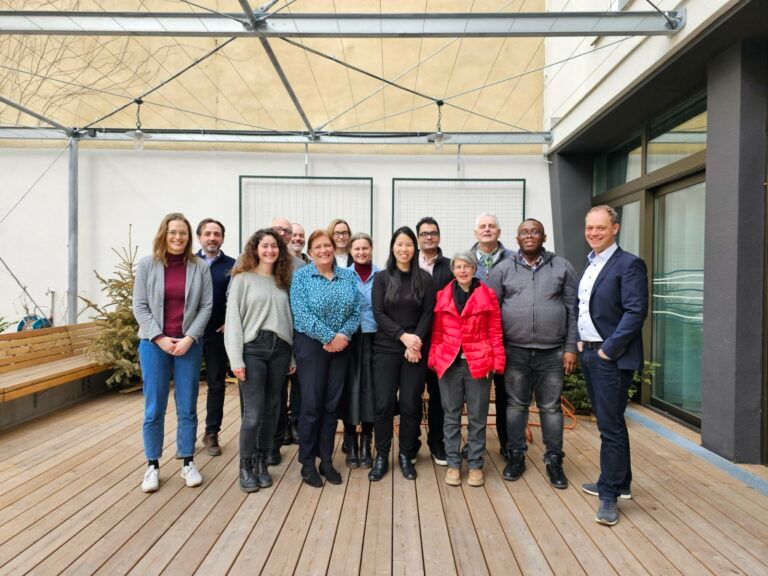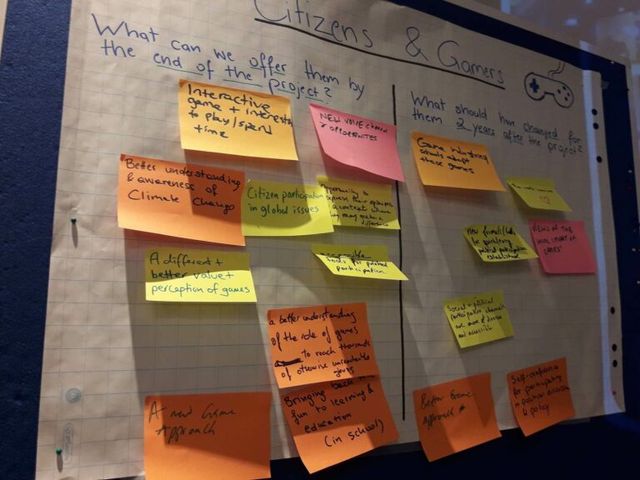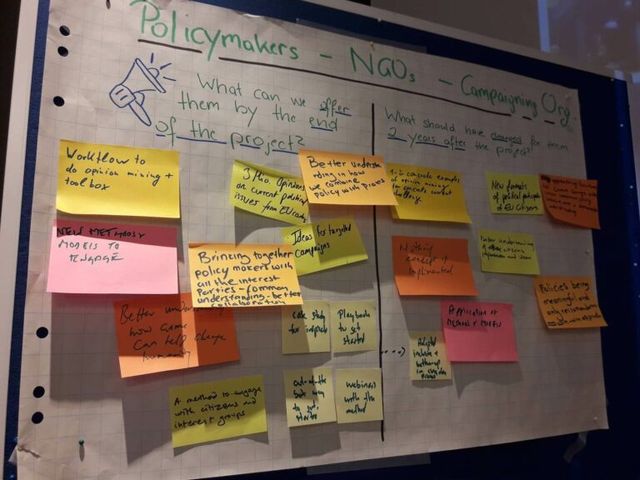
GREAT Project kick-off meeting
A fruitful and successful kick-off meeting for the GREAT project (Games Realising Effective and Affective Transformation, co-funded by EU and UKRI) with all consortium partners was held on 1-2 March. DIPF project members (Hendrik, Jane, Dana) hosted the 2-day kick-off meeting, which covered all work package activities for the coming 12 months. The project uses games to engage citizens and collect anonymised data regarding climate crisis attitudes and opinions. These are then anonymously analysed and sent to policy-makers, with the aim of influencing them to make even better climate emergency policies more suited to citizens’ needs.
Two different types of games will be tested:
- With simple quiz games on mobile phones – this can reach high numbers of users and thus large data volumes can be generated. The games will focus on topics such as transportation, energy, food, nature and population protection, or the development of a “green economy”.
- With more complex games, groups of players are confronted with a problem that is to be tackled through collaboration, providing deeper insights into the opinions and needs of citizens. Both approaches will strictly adhere to data privacy and protection.
The working sessions at the meeting included:
- the planning of the first co-design focus group with policy stakeholders,
- demonstration of the two different game platforms
- the research methodology
- the dissemination and communication strategies
- citizen science
- how evaluation will take place maximising research impact, as well as
- climate change education in international policies.
Below are a couple of photos of one brainstorming workshop session, with the questions of:
- What can the project members offer Citizens and Gamers by the end of the project?
- What should have changed for Citizens and Gamers for them 2 years after the project?
- What can the project members offer Policymakers – NGOs – Campaigning Organisations by the end of the project?
- What should have changed for Policymakers – NGOs – Campaigning Organisations for them 2 years after the project?


See the press release for more information about the project and consortium members.